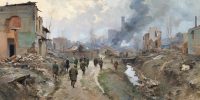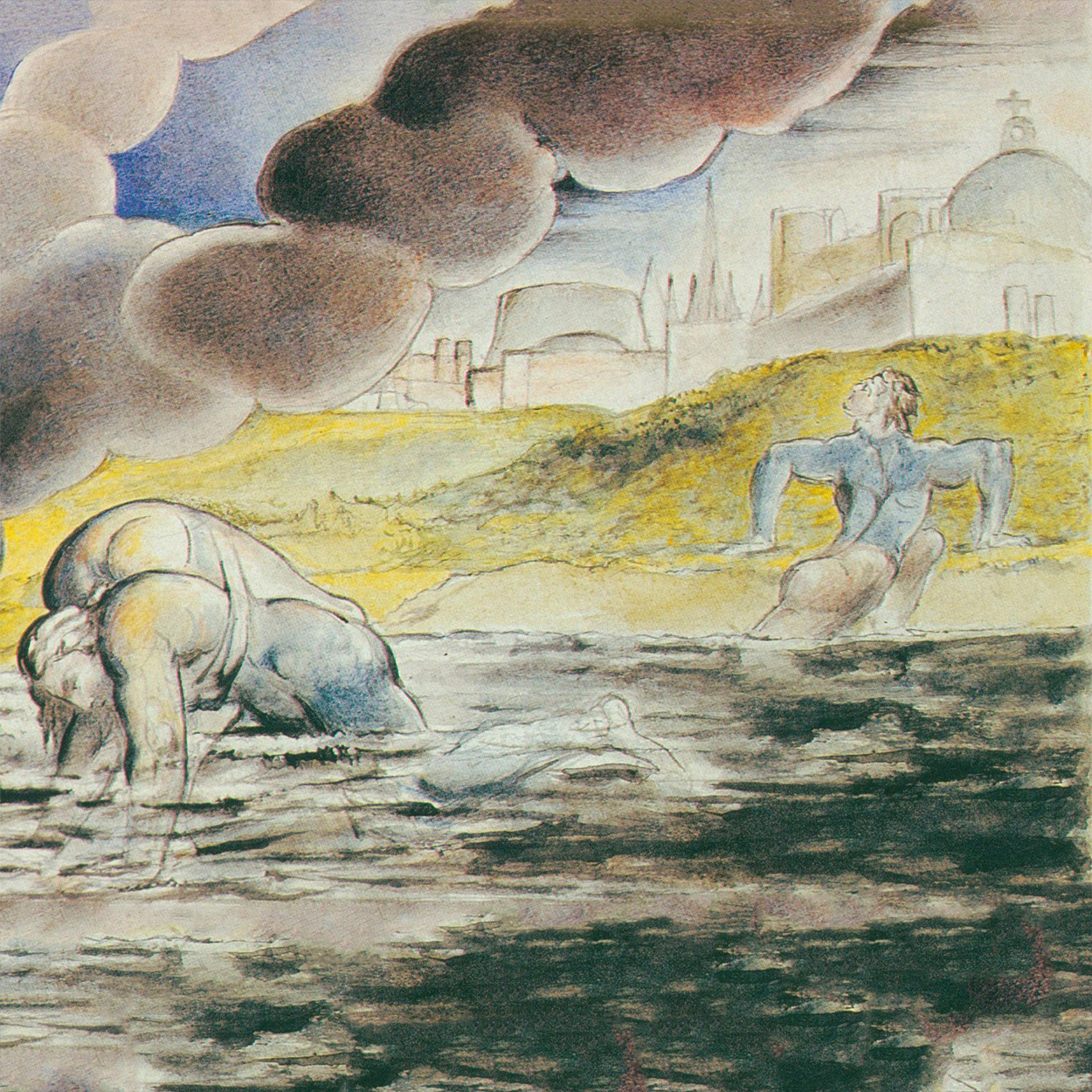For the past few weeks, millions of Americans have tuned in as the House Select Committee to investigate the January 6th Attack on the U.S. Capitol has conducted public hearings. In these hearings, the committee has put forward evidence backing up a compelling narrative chronicling the efforts by former President Donald Trump to stay in power after he lost the 2020 election.
Yet because these hearings have become deeply politicized, and seen as more of a television spectacle rather than a bona fide hearing, I fear that many people are not listening.
Two things have stood out to me about these hearings:
First of all, the plans and anticipations began long before January 6th. Indeed, even before the election, President Trump worked to convince his supporters that the only way he could lose would be if fraud was committed. As highlighted prior to the election in the pages of this magazine, President Trump began raising questions about the election in tweets as early as June, stating, “This will be the Election disaster of our time. Mail-In Ballots will lead to a RIGGED ELECTION!” and then, “RIGGED 2020 ELECTION: MILLIONS OF MAIL-IN BALLOTS WILL BE PRINTED BY FOREIGN COUNTRIES AND OTHERS. IT WILL BE THE SCANDAL OF OUR TIMES!” And then, “Because of MAIL-IN BALLOTS, 2020 will be the most RIGGED Election in our nation’s history—unless this stupidity is ended.”
In the months following those tweets, President Trump returned to this theme multiple times, including remarks in mid-August 2020 where he said, “The only way we’re going to lose this election is if this election is rigged,” and then later that month, “the only way they’re going to win is by a rigged election”—a contention he repeated in September: “The Democrats are trying to rig this election because that’s the only way they’re going to win.” He also said, “they’re trying to steal the election, and everybody knows that,” and called it all a “scam.”
As one commentator said about the President at the time, “He’s effectively saying the election is illegitimate unless he wins”—with another summarizing the message as being, “If any result is not as I declared it to be, that is fraudulent.”
It’s remarkable that this alone was not alarming to more, even most, Americans at the time. Of course, President Trump is not the first, or only politician to cry “foul” over an election loss. Our nation has witnessed a number of contested elections—on the national and local scale, including the 2000 Election which ultimately required the Supreme Court’s intervention. What strikes me as different is two fold. First of all, this election was not particularly close. Second, while past politicians have sought recounts or filed lawsuits, Trump was willing to go beyond the courts and engage in a prolonged campaign of deception and intimidation without regard for the facts. I was reminded of the many accounts in the Book of Mormon of those who attempted to usurp power and the brave men and women willing to stand up against them.
The second and perhaps the most alarming thing is that this plot could have been successful in at the very least fomenting chaos and a deep constitutional crisis, but for a few brave leaders who stood up and resisted. The hearing on June 16th highlighted the pressure campaign that Vice President Pence experienced that week, up to and including threats to his safety. Despite that pressure from the President himself as well as many of the President’s surrogates and advisors such as John Eastman, and Steve Bannon, President Pence stood firm in defense of the Constitution against what many have concluded was President Trump’s unlawful coup attempt. He stood undaunted even when President Trump turned against him and called him out before his followers. He stood undaunted even when the President tried to provide him with a pretext to act. He stood undaunted in the face of a mob and refused to leave the capitol until the election results were certified.
On June 21, 2022, Arizona Speaker of the House Rusty Bowers, a member of The Church of Jesus Christ of Latter-day Saints spoke about the months-long pressure campaign from the President, Rudy Guliani, and others to call the election into question and hold baseless investigations and hearings. When Bowers refused to comply with the President’s requests, he became the subject of incredibly aggressive measures including people parking outside of his house displaying a video accusing him of being a pedophile and having a militia member with a gun confront one of his neighbors.
As I listened to the testimony over the past few weeks, I was reminded of the many accounts in the Book of Mormon of those who attempted to usurp power and the brave men and women willing to stand up against them. At the end of the Book of Alma, we learn of a plot by “king men” to overthrow the government and replace it with a monarchical rule. These Kingmen “used great flattery” and “led away the hearts of many people.” Pahoran, the judge at the time, managed to escape their coup attempt and to rally the people to take back their government.
Just a generation later, a similar pattern recurs. When Pahoran dies, three of his sons “contend for the judgment seat.” The people support Pahoran (II). His brother Pacumeni accepts the will of the electorate. But his other brother Paanchi does not. Just as he “was about to flatter away those people to rise up in rebellion against their brethren,” he is taken and sentenced to death. That’s when his followers send forth a man to murder Pahoran and try to take control—forming a secret combination bent on power. They do not succeed right away. But eventually, this secret combination “did prove the overthrow, yea, almost the entire destruction of the people of Nephi.”
When I first read the Book of Mormon, it was hard for me to understand how so many people could be led astray by this kind of flattery and support usurpers to the throne. But now that I have seen something similar happen right before my eyes, it is not so difficult to imagine. I can now understand why the appeals of the Kingmen or the Gadianton band could have been so seductive to so many people.
Perhaps the Kingmen claimed that the selection of judges was rigged. Perhaps they claimed that power had been stolen from them. Perhaps they claimed that if they were not put into power that their nation would fall apart into chaos. Perhaps they argued that only they could keep the nation great. Perhaps they argued that the ends justified the means of overthrowing the government. This kind of grievance and fear-based argument can be extremely powerful, especially in a time of great instability and change.
I’m not suggesting all Trump supporters fell into the trap that makes them akin to those who followed the King Men or the Gadianton Robbers; indeed, Vice President Pence was a very loyal supporter of President Trump. And people can, in good faith, debate over whether we need more electoral security or whether policies enacted in response to the COVID-19 pandemic made the 2020 election less secure. My focus is on those who resisted the peaceful transition of power and bought into President Trump’s lies, like the ancient American people who went off after Paanchi’s deceptions.
Only a fraction of Americans appreciates how consequential the message of this mighty, ancient book is for our current circumstances. The Book of Mormon shows us that liberty is precious and that it only takes a few wicked men to destroy it. It also teaches that a few righteous men like Captain Moroni and Pahoran can prevent society from spiraling into wickedness. Perhaps the Kingmen claimed that the selection of judges was rigged. Perhaps they claimed that power had been stolen from them.
Rusty Bowers similarly read these powerful words of conscience and conviction from his journal written at the time: “I will not play with laws I swore allegiance to[.]” “How else will I ever approach [God] in the wilderness of life, knowing that I ask of this guidance only to show myself a coward in defending the course He led me to take?
Unfortunately, these stories in the Book of Mormon also show that attempts at the destruction of government are rarely one-time incidents. Instead, they tend to feed into each other and lead to the escalating destruction of norms rather than a return to previous and long-held norms of social and democratic stability. I fear that the destruction of the specific norms around the peaceful transition of power “will be the cause of sore affliction among us.”
It is worth acknowledging here that neither side of the aisle has pure hands with regard to responding graciously to defeat. Both sides have undermined democratic norms. But President Trump’s organized and carefully orchestrated plan to reject the will of the people and remain in power goes far beyond the pale and represents a frightening lurch away from democracy.
What can break this downward cycle? Repentance and some legitimate accountability. Hopefully, as we learn about exactly what happened on January 6 and how close we came to the brink, we can as a nation recommit to righteous principle and reject the conspiracy theories and lies that brought us to that point. We need to reject the purely partisan framing of these events and step outside party lines to seek bipartisan solutions. The Book of Mormon represents yet another warning that if we are not able to do so, we may suffer severe and lasting consequences.
At the end of January 6, 2021, after Vice President Pence carried out his duty as Vice President and certified the election results, his Counsel Marc Short sent him a text message sharing a verse of scripture, where Paul declares, “I have fought the good fight, I have finished my course, I have kept the faith” (2 Timothy 4:7). This is a powerful and inspiring message. Maintaining a free nation is a fight, but it is a good fight and a righteous cause. I pray that we will have the courage to keep the faith and fight this good fight.

















